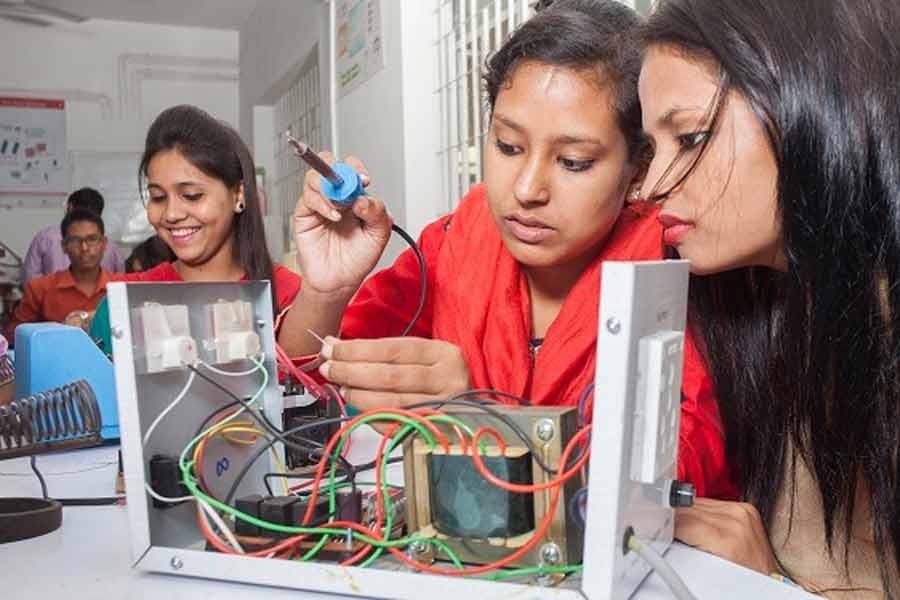
Published :
Updated :

A news report, carried in a vernacular daily, revealed that approximately 60 per cent of the seats in the country's state-owned technical schools and colleges remain vacant each year. This situation, while disappointing, also presents an opportunity for improvement in the country's overall technical and vocational education (TVE).
Currently, there are mainly two types of institutions providing TVE under various curricula. These institutions are: (i) Polytechnics and (ii) Technical Schools and Colleges (TSCs). At present, there are 50 polytechnic institutes and 155 government technical schools and colleges operating under the Directorate of Technical Education (DTE). TSCs provide certification-level education, while polytechnics offer diplomas. There is also one degree-level technical teachers' training college and four engineering colleges under the DTE. At present there are 12,704 Technical and Vocational Education and Training (TVET) institutes across the country approved by the Bangladesh Technical Education Board (BTEB). Of these, only 1,205 are government-owned and the remaining 10,869 are in the private sector.
DTE-owned TSCs are designed to educate students for appearing at secondary school certificate (SSC) and higher secondary school certificate (HSC) examinations under the Technical Education Board. After passing the examinations, students get vocational certificates. Thus, the curricula of these schools and colleges are a mix of general and technical education with greater focus on technical subjects. The objective is to develop the technical skills of students and train them to adopt advanced techniques.
In an apparent bid to expand the network of technical education and make it popular, the government has already decided to build 429 TSCs in 429 upazilas in the country. The previous Awami League government initiated the construction of these schools and colleges under two development projects. Although the project completion deadline is December this year, 338 institutes are still under construction, and there is a move to extend the deadline for both projects to complete the construction works.
The projects were actually undertaken as part of enhancing physical infrastructure to showcase the advancement in development works. The ousted regime prioritised the construction of physical infrastructure in various sectors, mostly at inflated costs, to the benefit of rent-seeking party members. Thus several buildings, culverts, and bridges constructed are underutilised or non-utilised. Construction of TSCs without properly reviewing the shortcomings of the technical education also reflects similar short-sightedness.
Though the need for technical and vocational education is indisputable, there is a lack of effective measures to make it popular and build awareness among the people about the necessity of TVET. The carrier path of TVET is also unclear, as there is an excessive emphasis on general lines of education. The Population and Housing Census 2022 showed that less than one per cent of the population in the field of education opts for technical or vocational education or training. Instead, more are gradually leaning towards religious education. The census also showed that the population ratio obtaining religious education increased to 7.19 per cent in 2021 from 5.58 per cent in 2011 and 3.16 per cent in 2001. The reasons for this shift could be a lack of awareness about the potential career opportunities in technical fields, the perceived social status of technical professions, and the lack of proper guidance for students. Again, at the national level, general education occupies the highest share, with 89.26 per cent. The technical and vocational education ratio stood at 0.81 per cent in 2022, compared with 0.71 per cent in 2011 and 0.41 per cent in 2001.
The census finding is thus critical for charting the country's TVET course as it is still less attractive to parents and students. Before investing in more institutions without developing adequate human resources for teaching and training and providing necessary logistics, it will be sheer waste of public money. Revising the curricula is also necessary to accommodate global trend.
asjadulk@gmail.com


 For all latest news, follow The Financial Express Google News channel.
For all latest news, follow The Financial Express Google News channel.